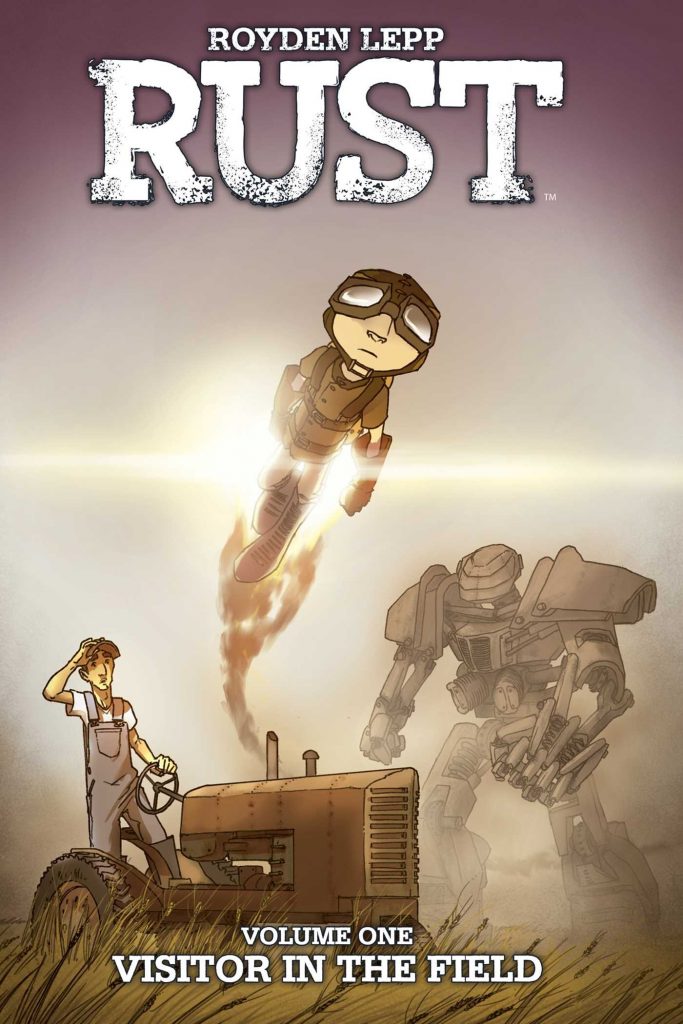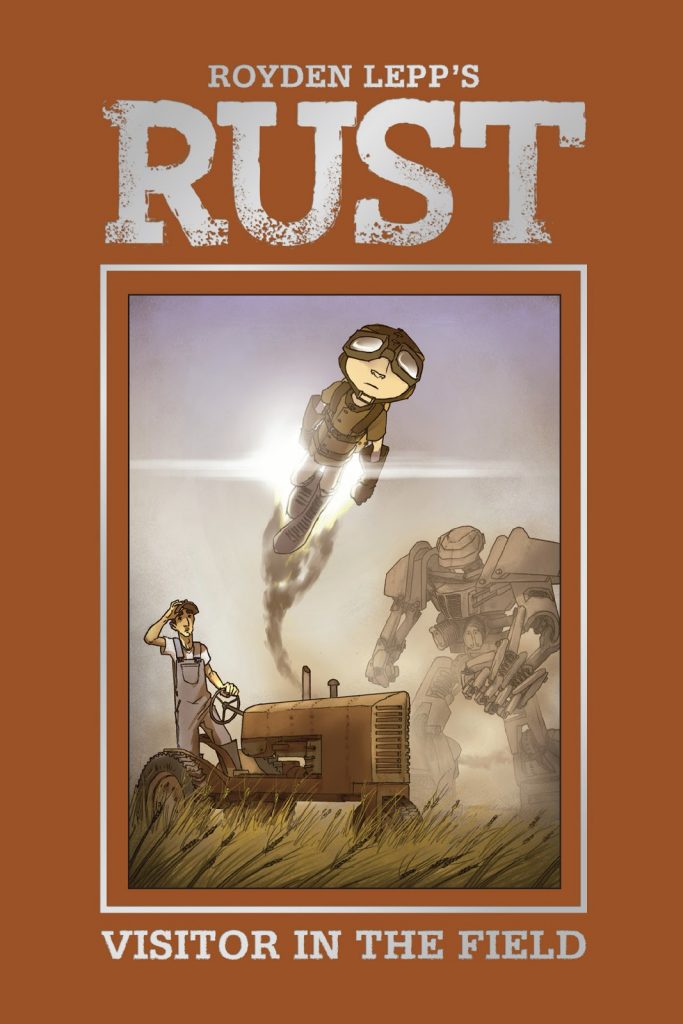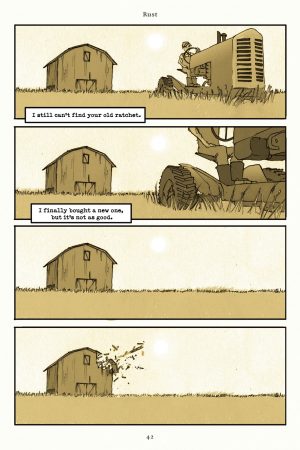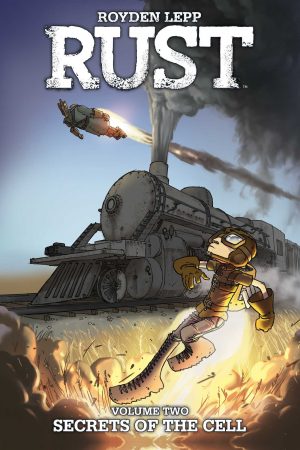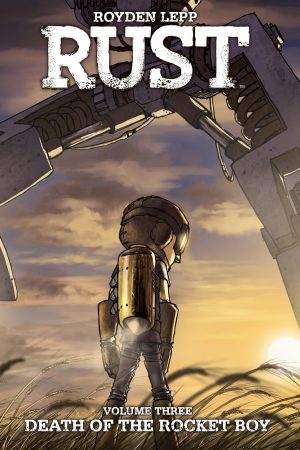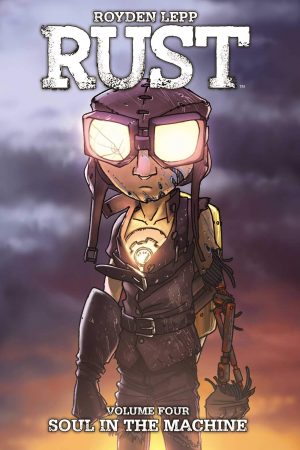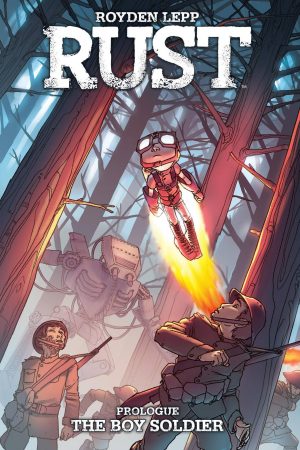Review by Karl Verhoven
Any series should have an effective opening statement, something that either establishes the primary characters, introduces a mystery or pulls a surprise out of nowhere. Royden Lepp opts for a very tidy version of the latter with a scene that’s ostensibly ordinary mid-20th century soldiers moving through the woods in preparation for an attack. That occurs 48 years before the present day, which is primarily set on an isolated farm, the type of rural heartland occupied by Ma and Pa Kent when they raised Superman. This farmstead, though, is run by Roman Taylor who tinkers with mechanical devices, his narrative captions a typed letter composed to his father.
From the beginning Lepp straddles a clever line both cultivating a quiet rural mood, while also establishing terrors exist, although not known to the general public. Mystery is added via Roman’s father. What’s happened to him? Are the narrative captions just comfort correspondence with the much loved dearly departed or is the father still accessible somewhere, but no longer on the farm? From the leisurely approach Lepp applies to his storytelling don’t expect answers soon. It might sound frustrating, but Rust isn’t. It’s a series to absorb, to let the mood seep in, while appreciating the calm and the chaos.
Lepp’s art renders both to a high standard, all in sepia indicating the past being the present and giving us the wide open spaces with simple buildings and clothes. He slips in matters not referenced in dialogue. That a girl is blind has to be mentioned, but Oz has at some stage lost his right hand, and that’s only noted through observation. He’s actually a slight plot weakness, presumed to be Roman’s son, but revealed in Secrets of the Cell to be his younger brother. Lepp pours the detail into mechanical devices, be they a tractor or a giant robot. The cover warns us to expect that, and it arrives on the farm shortly after the cover’s other major character, a young teenager named Jet who flies via a rocket pack and is the robot’s target. Lepp choreographs extended chase and conflict scenes, made more thrilling for knowing the robot’s weakness, yet actually disabling it is a complex process.
After he’s introduced his themes, Lepp supplies some background to his world, explaining robots, yet in doing so intriguing further, Jet dropping some enigmatic dialogue and Lepp underlining this isn’t our world, despite the similarities. There’s a story to be told, but dialogue is kept minimal and functional. “I signed papers… I took an oath… but there were experimental projects I saw during my tour.” speaks volumes in explaining the robots, and a clever piece of writing and speculation brings the ending back full circle to the prologue sequence. Anyone unable to immerse themselves in a creator’s mood may become frustrated at Lepp’s slow pace, but there’s a lot going on in Visitor in the Field, readers granted more access than Roman, and it’s a rewarding read with the promise of more to come.
